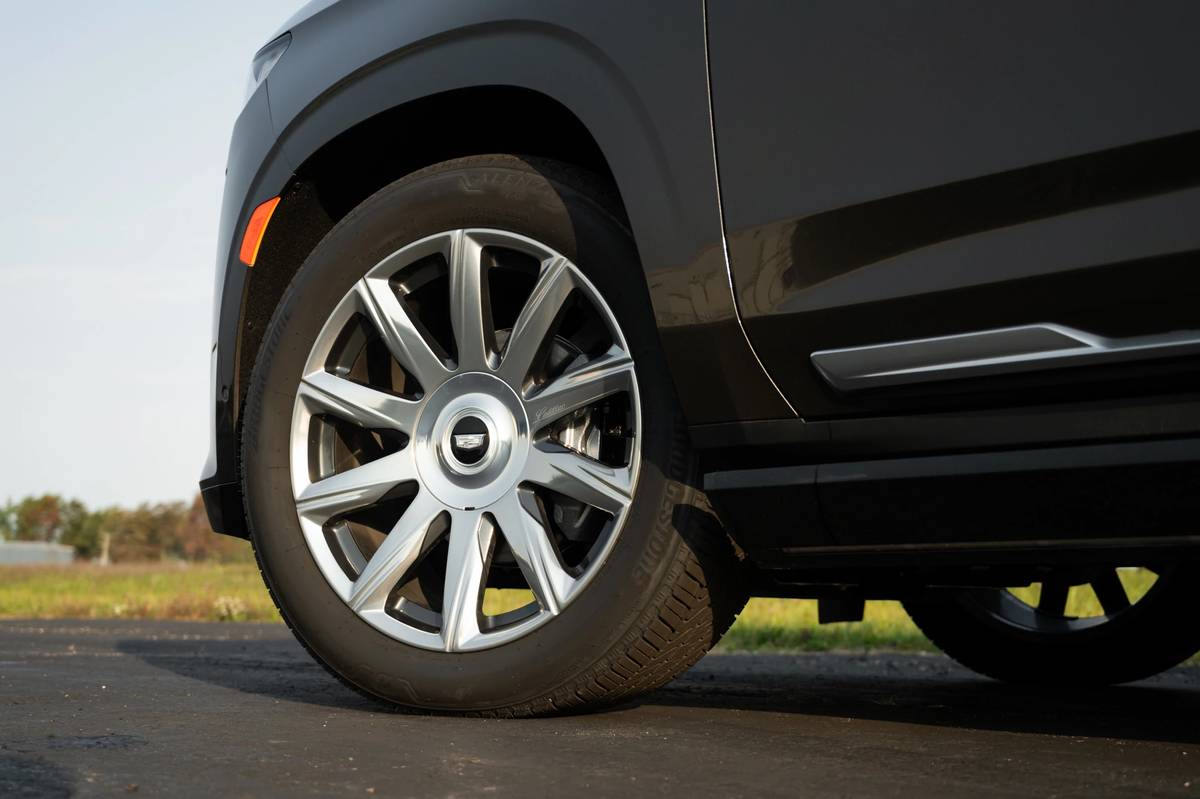Comparing tire replacement costs for various car models can help you make an informed decision when it comes to maintaining your vehicle. By researching the price of replacement tires for different car models, you can estimate the potential ongoing expenses and factor them into your budget.
Considering the variation in costs across different car models, it’s essential to understand the pricing differences and plan for potential tire replacements accordingly. When it comes to maintaining your vehicle, one of the ongoing expenses to consider is the cost of replacing tires.
This is a critical aspect of car ownership, as appropriate tire maintenance directly impacts vehicle safety and performance. Understanding the replacement costs for different car models can help you anticipate and plan for these financial obligations. By comparing tire prices, you can make informed decisions about potential expenses associated with maintaining your vehicle. This article will explore the varying costs of tire replacement for different car models, enabling you to understand and plan for these ongoing maintenance expenses effectively.

Credit: www.cars.com
Factors Affecting Tire Replacement Costs
Tire replacement costs vary across car models due to factors like tire size, brand, and labor charges. Understanding these variables can help car owners make informed decisions when comparing expenses for different vehicles. By analyzing these elements, individuals can make cost-effective choices when it comes to replacing tires on their cars.
Factors Affecting Tire Replacement Costs When it comes to tire replacement costs for different car models, several factors come into play. These factors can vary from the brand and model of the car to the types of tires used and even the driving habits of the car owner. Understanding these factors is crucial in determining the potential expenses you might incur when it’s time to replace your car tires. Let’s dive into each of these factors in detail.Brand And Model Of Car
The brand and model of your car can have a significant impact on the cost of replacing your tires. Different car manufacturers have their own tire specifications and recommendations, which can affect the price. For example, high-end luxury cars often require specialized tires that are specifically designed to enhance performance and ensure a smooth and comfortable ride. These tires may be more expensive than those used for mainstream car models, which can impact the overall replacement cost.Types Of Tires Used
The types of tires used on your car can also influence the costs associated with replacement. There are various types of tires available in the market, each serving different purposes and having specific features. For instance, performance tires are designed to provide exceptional handling and grip, making them popular among sports car enthusiasts. On the other hand, all-season tires are versatile and suitable for most everyday driving conditions. The type of tire you choose will depend on various factors such as climate, road conditions, and personal preferences. However, it’s important to note that specialized tires, such as winter tires or run-flat tires, may be more expensive than standard options.Driving Habits
Your driving habits also play a role in determining the lifespan of your tires and, consequently, the frequency of replacement. Aggressive driving, such as sudden braking and accelerating, can significantly wear down your tires faster, leading to more frequent replacements. Similarly, driving on rough terrains, pothole-filled roads, or unpaved surfaces can increase the chances of tire damage, requiring premature replacement. Maintaining proper tire pressure and regular rotation can help extend the life of your tires and reduce replacement costs in the long run. In conclusion, the brand and model of your car, the types of tires used, and your driving habits all contribute to the overall cost of tire replacement. By understanding these factors, you can make informed decisions about the best tires to choose for your car and optimize their lifespan. Regular maintenance and safe driving practices can also help reduce the frequency and expenses associated with tire replacements. As a car owner, being aware of these factors can save you time, money, and unnecessary inconvenience down the road.Credit: www.sosubaru.com
Average Tire Replacement Costs For Popular Car Models
The cost of replacing tires varies depending on the make and model of the car. Understanding the average tire replacement costs for popular car models can help you make informed decisions when budgeting for maintenance expenses. Let’s take a closer look at the average tire replacement costs for sedans, SUVs, and trucks to give you an idea of what to expect when it’s time to replace the tires on your vehicle.
Sedans
When it comes to replacing tires on a sedan, the average cost ranges from $100 to $200 per tire. Popular sedan models such as the Honda Civic, Toyota Camry, and Ford Fusion fall within this price range. Keep in mind that the actual cost can vary based on factors like tire size, brand, and additional services such as alignment or balancing.
Suvs
For SUVs, the average tire replacement cost is slightly higher, ranging from $150 to $250 per tire. Common SUV models like the Toyota RAV4, Honda CR-V, and Ford Escape typically require tires within this price range. Factors like tire size and brand can influence the final cost, so it’s essential to consider these variables when budgeting for tire replacement.
Trucks
Truck owners can expect to pay an average of $200 to $300 per tire when it’s time for replacement. Trucks such as the Ford F-150, Chevrolet Silverado, and Ram 1500 often require tires within this price range. Keep in mind that larger tire sizes and specialized off-road tires may fall on the higher end of the cost spectrum, so budgeting for these potential expenses is crucial.
Evaluating Long-term Cost Efficiency
When evaluating long-term cost efficiency, it’s essential to consider the factors that contribute to tire replacement costs for various car models. By analyzing the cost per mile, tire longevity, and warranty coverage, drivers can make informed decisions to optimize their investment in tires.
Cost Per Mile Analysis
Comparing the cost per mile of tire replacement for different car models can provide valuable insights into long-term cost efficiency. By dividing the total cost of a new set of tires by the expected mileage, drivers can determine the average cost incurred per mile driven. This analysis allows for a direct comparison between car models, helping individuals make informed decisions based on their driving habits and budget constraints.
Tire Longevity And Warranty Coverage
Understanding the expected longevity of tires and the associated warranty coverage is crucial when evaluating long-term cost efficiency. By examining the treadwear rating and the manufacturer’s warranty, drivers can gauge the expected lifespan of the tires and the protection offered in case of premature wear or damage. This information empowers car owners to assess the overall value of different tire options over the long term.
Tips For Saving On Tire Replacement
Discover effective tips for saving on tire replacement by comparing costs among different car models. Find out how you can get the best value for your money while ensuring safety on the road. Gain insights into choosing the right tires without breaking the bank.
Introductory paragraph (Tips for Saving on Tire Replacement): Tire replacement is an inevitable expense for car owners, but it doesn’t have to break the bank. By following a few simple tips, you can save money and still ensure your car’s safety and performance. In this article, we will discuss some effective ways to save on tire replacement costs, including regular maintenance practices and the benefits of comparison shopping and negotiation.Regular Maintenance Practices
Taking proactive measures to maintain your car’s tires can extend their lifespan and save you from having to replace them prematurely. Here are some regular maintenance practices to consider:- Regularly check tire pressure: Maintaining the correct tire pressure not only improves fuel efficiency but also helps to prevent uneven tread wear. Use a reliable tire pressure gauge and refer to your car’s manual for the recommended pressure levels.
- Rotate your tires: Rotating your tires regularly promotes even wear, which can significantly extend their lifespan. Consult your car’s manual for the recommended frequency of tire rotation.
- Alignment and balancing: Proper wheel alignment and tire balancing play a crucial role in preventing premature wear and tear. Regularly schedule alignment and balancing services to ensure optimal tire performance.
- Inspect for damage: Routinely check your tires for signs of damage, such as cuts, bulges, or punctures. If you notice any issues, have them inspected and repaired by a professional as soon as possible.
- Tire rotation: Tire rotation is an important maintenance practice that helps to evenly distribute wear and extend tire life. Consult your car’s manual for the recommended rotation pattern and frequency.
Comparison Shopping And Negotiation
One effective way to save on tire replacement costs is through comparison shopping and negotiation. Consider the following strategies:- Research different tire brands and models: Before making a purchasing decision, research various tire brands and models to determine the ones that offer the best value for your money. Look for those that provide a balance between quality and affordability.
- Compare prices from multiple retailers: Prices for tires can vary significantly between retailers, so take the time to compare prices from different sources. Check both online and brick-and-mortar stores to ensure you get the best deal.
- Look for discounts and promotions: Keep an eye out for discounts and promotions offered by tire manufacturers and retailers. These can help you save a significant amount on your tire purchase.
- Negotiate the total cost: When buying tires, don’t be afraid to negotiate the total cost. Some retailers may be willing to lower the price or offer additional services as part of the deal. Remember, it never hurts to ask!
- Consider buying used tires: If your budget is tight, buying used tires can be a cost-effective option. However, ensure the used tires are in good condition and have enough tread depth to keep you safe on the road.
Future Trends In Tire Technology
Future Trends in Tire Technology are shaping the automotive industry. Innovations in Tire Design and Environmental Impact play significant roles in this evolution.
Innovations In Tire Design
- Airless tires reduce the risk of punctures.
- Self-healing rubber technology for longer tire lifespan.
Environmental Impact And Sustainability
- Recycled materials usage in tire production.
- Low rolling resistance tires for fuel efficiency.

Credit: www.solarreviews.com
Frequently Asked Questions Of Comparing Tire Replacement Costs For Various Car Models
How Much Should A Replacement Tire Be?
The cost of a replacement tire varies based on the size, brand, and type. On average, it can range from $50 to $200 per tire, excluding installation fees. It’s essential to consider your vehicle’s specific requirements and budget when purchasing a replacement tire.
What Would The Cost Of 2 New Tires For Your Car Be?
The cost of 2 new tires for your car would typically range from $200 to $600, depending on the brand and type.
What Is The Best Time To Buy Tires?
The best time to buy tires is typically in the fall. This is because tire manufacturers often release new models around this time, leading to discounted prices on older inventory. Additionally, buying tires before winter ensures optimal safety and performance.
Is It Better To Get Cheap Or Expensive Tires?
It is better to invest in quality tires over cheap ones to ensure safety and performance.
Conclusion
Overall, it is evident that the cost of tire replacement varies significantly across different car models. Factors such as tire size, brand, and quality play a crucial role in determining the expenses. It is always essential to consider these factors before making a decision on tire replacement.
By doing thorough research and considering all the aspects, you can ensure that you find the best tires for your car at a reasonable price.
